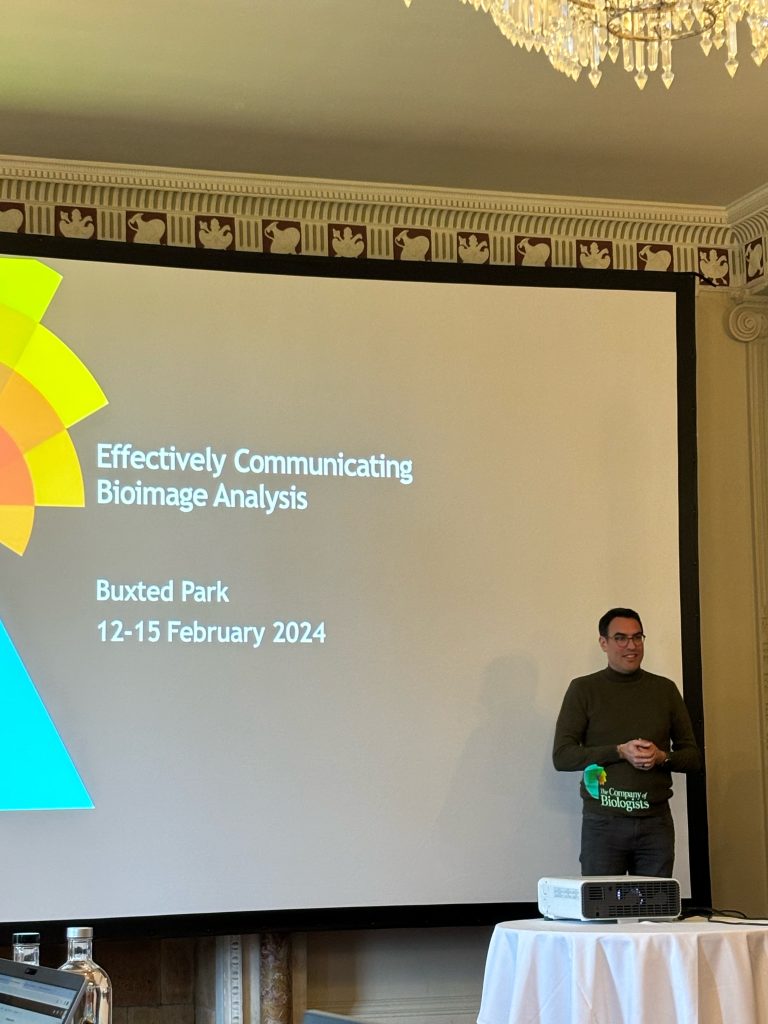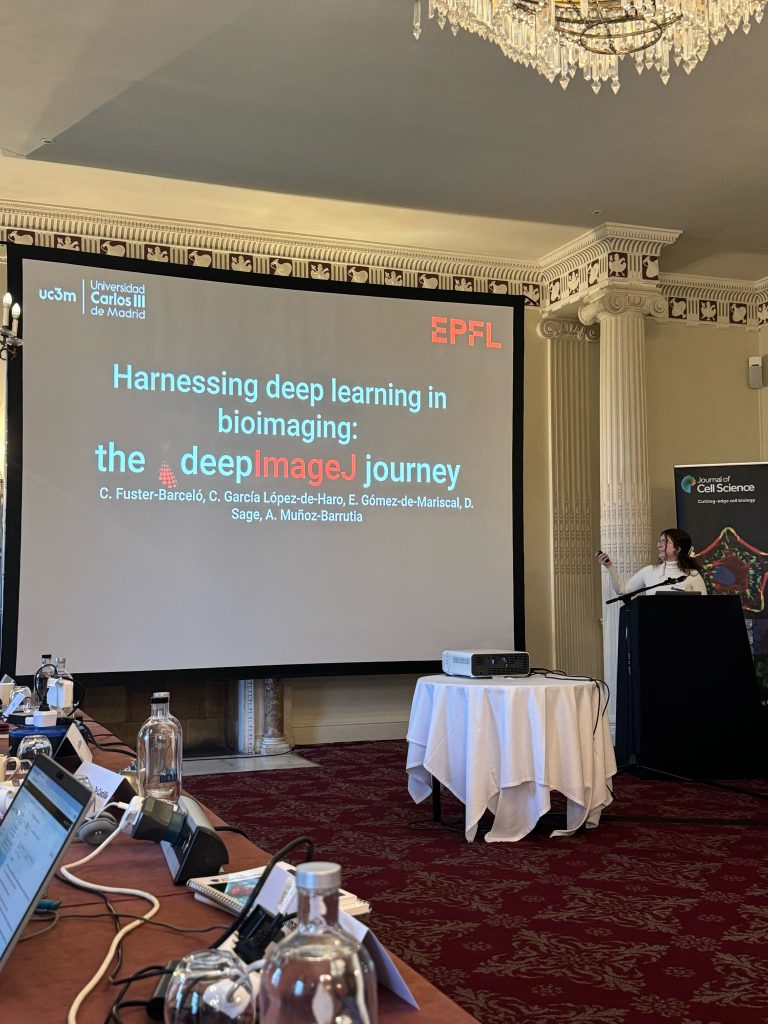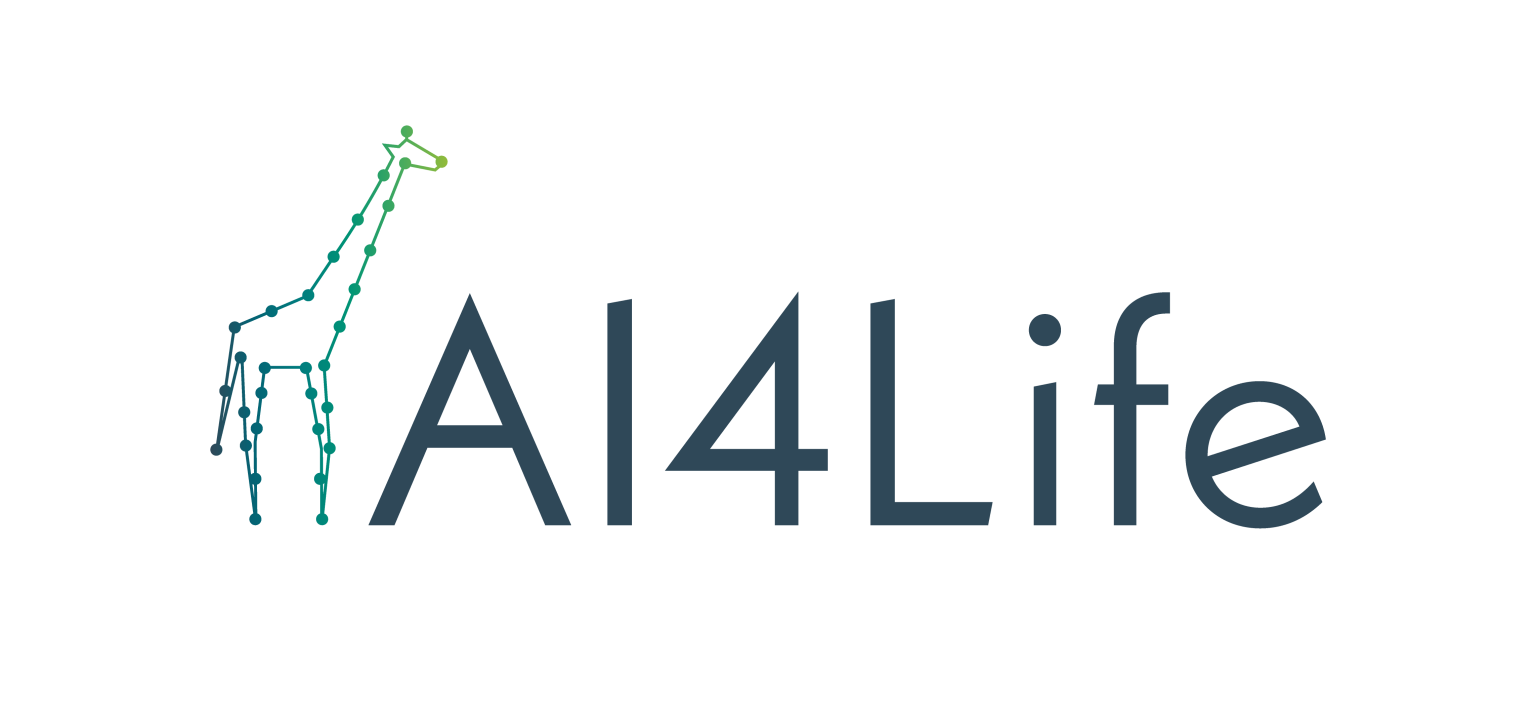AI4Life Project shines at the “Effectively Communicating Bioimage Analysis” workshop
by Caterina Fuster-Barceló and Florian Jug
This past February, the AI4Life project was one of the efforts that took part on the stage at the Effectively Communicating Bioimage Analysis Workshop, held from the 12th to the 15th. Organised by The Company of Biologists and Focal Plane, the event proved to be a resounding success, drawing in members of the AI4Life project alongside a host of other well-established members of our great community.
The workshop served as a critical platform for exchange over some of the bioimage analysis community’s most pressing challenges.
Among the highlights was the participation of Florian Jug from the HT in Milan, who captivated the audience as one of the invited speakers. Jug presented the AI4Life project and its initiatives, including the BioImage Model Zoo and Open Calls, showcasing the remarkable progress and achievements of the project over recent years. His presentation underscored the project’s efforts in bridging the divide between life scientists and developers, earning widespread admiration for its contributions.
Caterina Fuster-Barceló, representing the Universidad Carlos III de Madrid, Spain, also made significant contributions as part of the early-career researchers funded to attend. Chosen from numerous applications, Caterina represented the deepImageJ team, a Community Partner of the BioImage Model Zoo. She introduced the latest developments of the BioImage.IO Chatbot, a tool designed to address the challenges faced by deepImageJ and bioimage analysis at large.
The workshop not only served as a venue for learning and sharing but also as an opportunity for participants to connect with both new and familiar faces in a friendly and engaging environment. The event’s success reflects the community’s collective effort to foster an atmosphere conducive to growth, collaboration, and fun.
AI4Life stands at the forefront of reducing the gap between AI method development and biological imaging, offering essential services through European transnational and virtual access infrastructures. The project’s participation in the workshop is a testament to its commitment to advancing the field of bioimage analysis, marking yet another milestone in its journey towards integrating AI-based methods into the life sciences.


